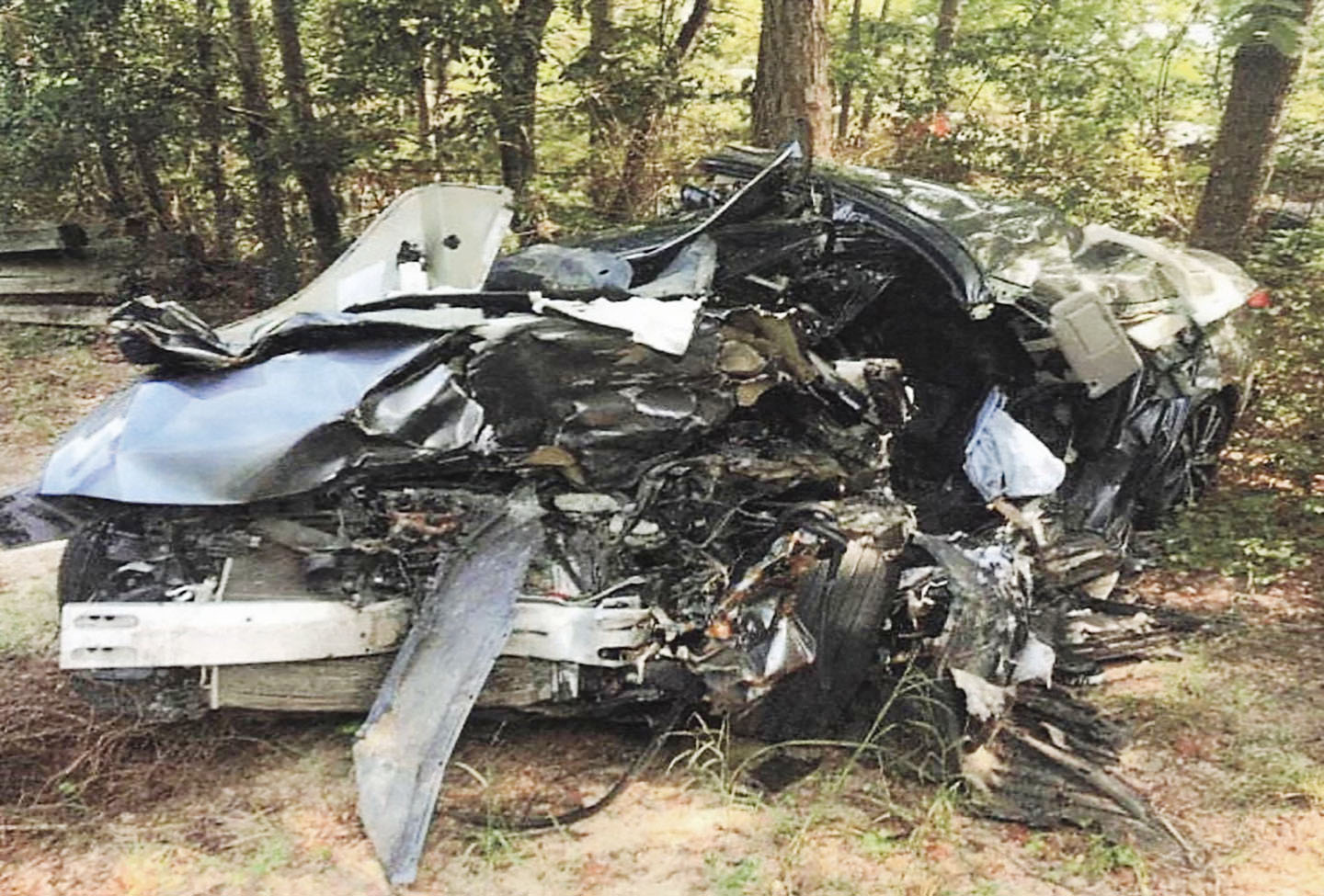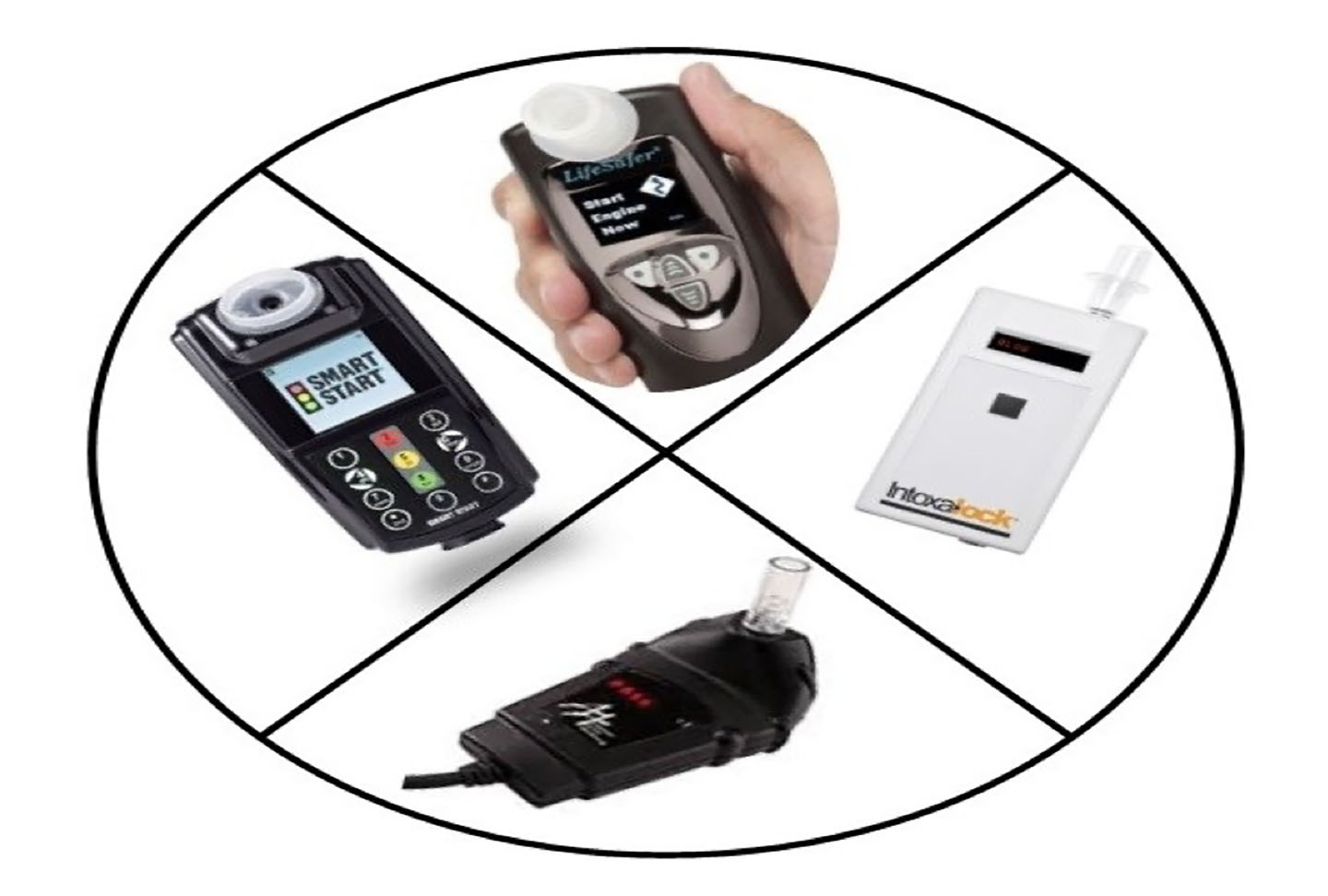A brochure for the ignition interlock program explains the law and how the device works. (Photo illustration by Camdyn Bruce/Carolina News and Reporter)
Significantly more S.C. drivers could have to blow into ignition interlock devices before they get on the road next year as the state cracks down on drunk driving.
The interlock is a breath-analysis device wired into a vehicle’s electrical system designed to prevent an intoxicated person from starting the car. Once the device is installed on a judge’s order, the car’s driver must submit a breath sample that returns a blood-alcohol level below 0.02% for the engine to start.
So who gets the device?
State lawmakers this spring passed a bill updating the program. Now, anyone convicted of a DUI recording a blood alcohol level of 0.08% will be required to have an ignition interlock installed.
Previously, the device was only required for those convicted of DUI with a blood alcohol level of 0.15% – or if they were a repeat offender.
“Numbers will more than double” for program enrollment once the changes go into effect in late May 2024, Annita Dantzler, the public information officer for the S.C. Department of Probation, Parole and Pardon Services, said in an email.
Today there are 1,225 drivers with the device installed.
Salatiel Galarza’s brother, Everardo Galarza, was killed by a drunk driver traveling the wrong way on Garners Ferry Road last year. He said it’s impossible to understand how harmful DUIs can be until you’re personally affected.
“Once that happens to you, then it’s a whole other world,” Galarza said. “It’s just a mixture of emotions, grief, anger, confusion. … It’s a plethora, a huge mixture, of all the emotions that are negative.”
Galarza said expanding the ignition interlock program was a step in the right direction, but there should also be more education about the dangers of alcohol.
“It does help, but I believe that there should also be more knowledge about what alcohol truly can do to oneself,” Galarza said. “I feel like most people do not even realize the true harm of alcohol.”
Dantzler said the device keeps drunk drivers off the road.
“Interlock Devices prevented 2,882 engine starts with a BrAC of .08% or higher” in 2022, Dantzler said.
Drunk driving has long been a problem in the state despite recent efforts to combat it, state Sen. Brad Hutto, D-Orangeburg.
South Carolina had the second-highest rate of DUI fatalities in the nation, according to a Market Watch study that used National Highway Traffic Safety Administration data.
Hutto said one reason he thinks DUIs are such a big issue is the lack of public transit in many areas.
Buses are hard to come by.
And, “quite frankly, we don’t even have Uber and Lyft in most rural areas,” Hutto said.
Hutto, who is also a DUI defense attorney, said another factor is that many people who get arrested for DUI don’t realize how impaired they are.
“A lot of people get behind the wheel thinking, ‘I’m fine. I’ve only had a few beers,’” Hutto said. “They’re not consciously getting out there and saying, ‘Boy, I better be careful,’ or ‘I’m really drunk.’”
Galarza, who lives in North Carolina, said South Carolina’s DUI laws aren’t strict enough to deter bad behavior.
“The penalties for drunk driving, and even the ones who commit the deaths of other individuals, a lot of times it’s really just a slap on the wrist,” Galarza said.
Joshua Collins, the drunk driver who hit and killed Everardo Galarza, pleaded guilty to felony DUI and was sentenced this year to five years in prison, according to Richland County General Sessions Court records.
Hutto earlier this year pushed for a stricter version of the bill that would have expanded the program further. His provision would have required all drivers arrested but not yet convicted of DUI to also enroll in the program.
The provision was removed from the bill as part of a compromise once it reached the House. Critics argued it violated due process to require the device pre-conviction.
Hutto thought his provision would help many people arrested for DUI who otherwise would have had their driver’s license suspended by allowing them to get an ignition interlock instead.
Someone arrested for DUI now gets their license suspended, pending a court date, if they refuse a breath test or if they take the test and record a blood alcohol level of 0.15% or higher.
“Having the ignition interlock on would at least allow you to drive and not have your license suspended during that period,” Hutto said.
Hutto said he planned to push the provision again during the next legislative session, though he wasn’t optimistic.
“Everybody in the House and Senate are up for elections this year, and attention spans don’t focus as well during that time,” Hutto said. “We’re gonna try. But I think we’ll have a better shot at it in the beginning of the 2025 year rather than in 2024.”
The car driven by Everardo Galarza, who was hit and killed by a drunk driver on Garners Ferry Road in 2022. (Photo provided by the Law Office of Kenneth E. Berger)
A look at several ignition interlock devices before they are installed (Photo courtesy of the S.C. Department of Probation, Parole and Pardon Services/Carolina News and Reporter)




